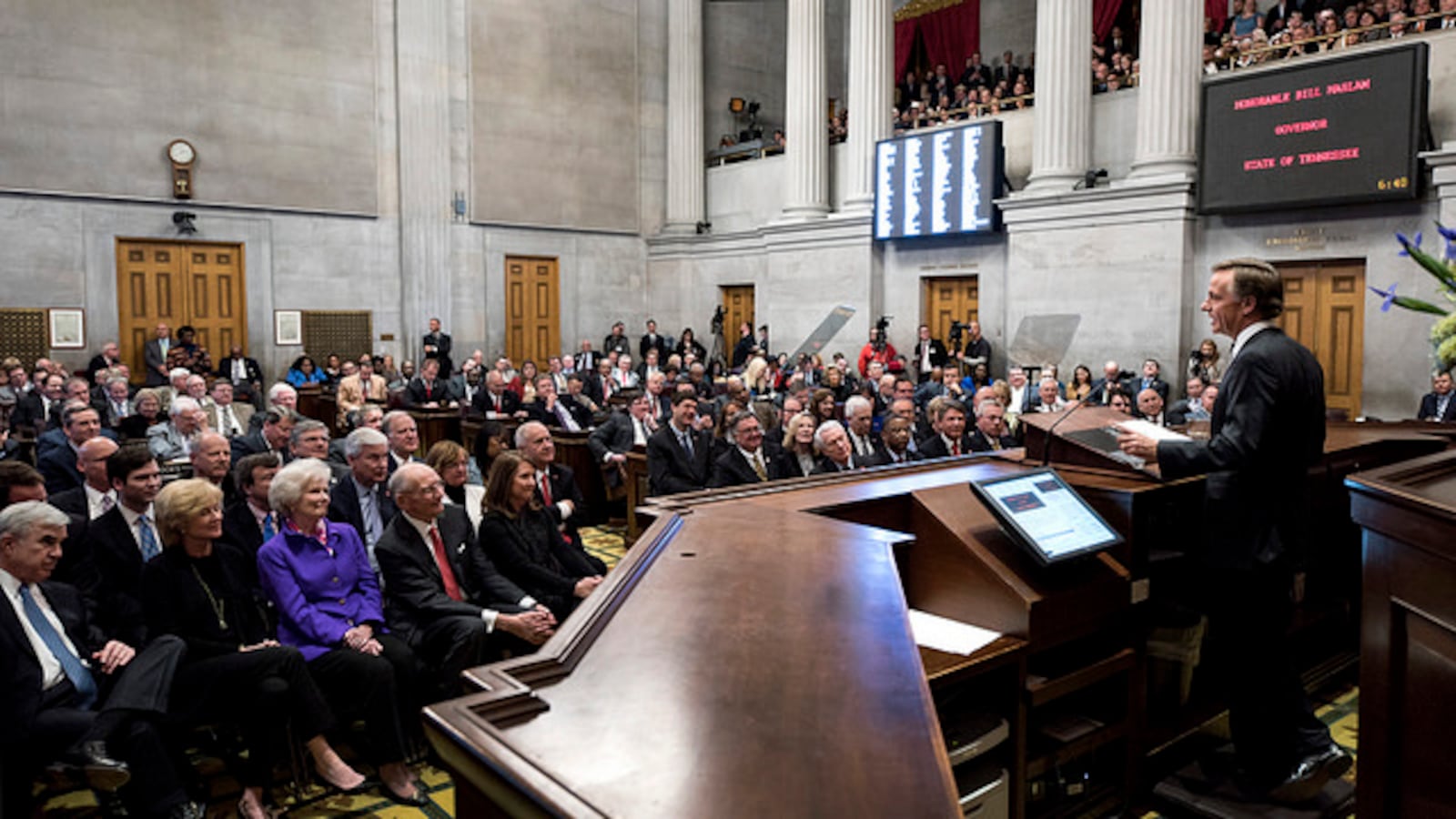Tennessee voters say they would be more likely to support a candidate for governor who promised to boost teacher pay and expand school choice, according to a new survey.
The statewide poll was commissioned by the State Collaborative on Reforming Education, an advocacy group that has pushed for test-based teacher evaluations and new academic standards and works closely with the Tennessee’s Department of Education. The poll, SCORE says, shows continued support for the state’s education reforms among both Republican and Democratic voters.
Still, only a little more than half of voters surveyed said they would be more likely to support a candidate who backs tougher statewide testing, and improving education came in third place as voters’ most pressing issue.
The results come one year before Tennessee’s 2018 gubernatorial primaries, and the state’s next leader will follow several governors who have sought to overhaul Tennessee’s K-12 schools.
Phil Bredesen, a Democrat, ushered in reforms with funding from the federal Race to the Top award. His Republican successor, Gov. Bill Haslam, has mostly continued those strategies, including raising academic standards, instituting more rigorous state testing, tying teacher evaluations to student performance, and intervening to improve low-performing schools.
Haslam, who has championed two significant increases for teacher pay, has frequently said he wants to be remembered as an “education governor.”
The poll found that voters surveyed from both parties positively viewed Haslam and his education policies, with 75 percent of Republicans and 63 percent of Democrats saying they were satisfied with the governor’s work.
“We’ve conducted similar surveys for the past 10 years, and Tennessee voters have consistently stood by policies that are focused on improving academic achievement for our students,” SCORE President David Mansouri said. “As we move into an important election cycle, this poll shows us that Tennessee voters continue to support the innovations that have been introduced to help students learn at higher levels.”
The survey finds there’s plenty of more work to do: Around 40 percent of voters from both parties said they thought K-12 education in the state is stagnant, while about 30 percent from both parties said it’s declining.

